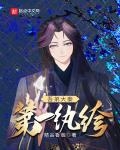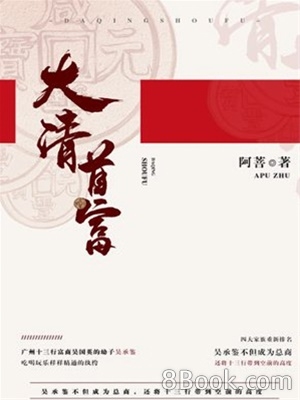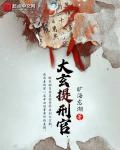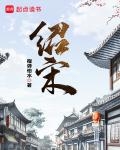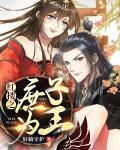Chapter 191: Bloody Battle at Daming Prefecture (Part 3)
The 40th Battalion was an easy-to-remember number. The battalion commander, Li Gengnian, was the oldest of all the battalion commanders. He was already 35 years old and had many wrinkles on his face. However, he wore a Qing army helmet with a face shield, which greatly reduced the age-revealing features that were fully displayed in front of everyone.
The middle-aged uncle shouted in a middle-aged voice: "Everyone just follow the old soldier's example, don't be afraid, as long as you obey orders, we can all survive!"
The ordinary soldiers of the 40th Battalion listened to the uncle's pre-war mobilization very seriously. Unlike the 4th to 10th Battalions, the 40th Battalion was established much later, and the proportion of new recruits among its members was much higher. Huo Chong let the new recruits like the 40th Battalion take on the lightest tasks. For example, the 43rd and 41st Battalions stayed behind to guard the base. The 16th and 42nd Battalions were used as a feint to attack Jinan.
Since the numbering starts from the 4th Battalion to the 43rd Battalion, the 40th Battalion is the youngest battalion on both sides of the battlefield.
The call of the battalion commander Li Gengnian made all the new recruits in the army feel much better. Most of them had only participated in the battle with Yue Zhongqi. At that time, Li Gengnian's requirements were no different from now, just asking them to learn from the veterans and follow the actions of the veterans.
The veterans in the 40th Battalion all felt the pressure. The so-called veterans did not participate in all three anti-encirclement and suppression campaigns. Many of them only participated in the annihilation of 20,000 Qing troops outside Jinan. They had not yet completely gotten rid of their fear, but they had to become the object of others' learning and set an example on the chaotic battlefield. The veterans' eyes lit up.
Li Gengnian continued to shout, "We have to survive. Mr. Huo said that we don't have to chase people and kill them. We just need to follow what he said and practice. We can fire our guns when ordered. That's all. There's nothing else. We just need to do this! New soldiers look to veterans, veterans look to squad leaders, squad leaders listen to platoon leaders, platoon leaders listen to company commanders. Company commanders listen to me!"
The entire battalion once again received complete information from the battalion commander Li Gengnian's call, including information about the entire battalion's goals, combat modes, and operating modes.
Everyone knew what level they were at and what they should do, and they had a backbone. In addition, Li Gengnian emphasized that everyone only needed to fire their guns and not chase. This made things even easier.
The new recruits especially felt relaxed. Compared with the veterans, the new recruits joined Huo Chong's army less for the purpose of repaying a favor. If they wanted to achieve their goal of joining the Han army, they had to survive. No matter how much they understood about the war, the new recruits at least believed that they would be more likely to survive if they avoided close combat with the Qing army as much as possible.
If the battle is the same as last time, the new recruits will just have to follow the veterans and fire their guns, and they will be safe.
Uncle Li Gengnian's approach is carried out in many battalions, especially those with numbers above sixteen.
As one of the two battalions that were to conduct a feint attack under Jinan City, the 16th Battalion was responsible for various mobile operations. Huo Chong did not want the 16th Battalion to actually fight, so he did not expect the battalions with numbers larger than 16 to fight bravely. In other words, for these battalions with more recruits, they only needed to stand still and fire their guns like a city wall or a forest, which would have satisfied Huo Chong's requirements.
The 4th to 15th battalions, these 12 battalions are mobile combat units, at least at this stage.
The soldiers here were not fearless revolutionary fighters, and Huo Chong had not yet conducted a thorough political education on class struggle. Preparations had been made, and some exposure of the exploiting class had of course been carried out. But Huo Chong did not want to make everyone in the world his enemy.
It's not that Huo Chong was afraid that his people would be frightened by the cruel truth of society. What made Huo Chong ponder was something else. If he carried out a comprehensive education on class struggle, would his people really understand it more deeply than the landlord class?
If this kind of education fails to awaken our own people, but instead makes the enemy alert first, then this kind of education strategy will be a failure.
Even if it was a very short-term cooperation, Huo Chong now had a "united front" to oppose the united front with Yongzheng as the core. The reason why those people in the capital were willing to provide information was largely because, as Mr. Ding said, they believed that Huo Chong might defect to the Eighth Master and contribute to the Eighth Master's cause in future wars.
If these people knew that Huo Chong's goal was not to pursue personal glory for his ancestors, to become a minister of the Qing Dynasty, to have his wife and children ennobled, and to have a long line of nobles, their willingness to cooperate with Huo Chong would be greatly reduced.
If these people knew that Huo Chong's goal was to completely overthrow the Qing Dynasty and destroy the landlord gentry class, replacing it with the new social system Huo Chong expected, they would probably immediately join Yongzheng's side and fight to the death with the protagonist.
Huo Chong had never understood and had no interest in understanding what the "united front" meant before. But now that Huo Chong had to painstakingly seek a route for the survival of this army composed of Shandong people, he naturally understood what the united front was all about.
Even someone like Chiang Kai-shek, who was anti-communist to the core and almost engraved in his DNA, had to cooperate with TG against his will during the Anti-Japanese War. Therefore, TG also made adjustments to its propaganda during that period and no longer mentioned destroying the landlord class.
That is, stop exacerbating conflicts and instead maintain cooperation.
If he could obtain intelligence from the capital by not making a fuss, Huo Chong was willing to accept such a price. He only carried out class struggle education among the top leaders, constantly exposed the evil of the landlords in the middle and lower levels, and guaranteed that if the landlords wanted to survive in the territory under Huo Chong's rule, they would never do such bad things as "giving birth to children without X-eyes" again!
Similarly, Huo Chong also carried out propaganda, saying that the Qing troops on the opposite side were the running dogs of the Qing emperor. The Qing emperor represented the interests of the landlords and gentry, because the Qing emperor was the "leader" of these landlords and gentry.
With this understanding, the Han army and the Qing army began to fight one after another in the area north of the Daqing River.
The general of Nanyang Town knew that if he lost again, he would have no chance of getting pardon from Yongzheng. He didn't know why he had such an idea.
Perhaps he had heard too much about Emperor Yongzheng's pursuit of the Eighth Prince's party and his atrocities against his brothers. The general of Nanyang Town felt that he was not even Yongzheng's brother, so naturally his fate was worse than that of Yongzheng's brothers.
With this understanding, the general of Nanyang Town who was ordered to attack the east urged his remaining 4,000 troops to launch a fierce attack on Huo Chong's troops, which numbered less than a thousand people in front of him.
The 40th and 10th Battalions were responsible for guarding this side. Seeing the Qing army lined up in a horizontal line, Li Gengnian, the commander of the 40th Battalion, did not feel anything, but decided to change the formation to a horizontal line according to the countermeasures he had learned. The officers of the 40th Battalion received orders and, according to the training process, moved the troops to form a horizontal line.
Nonsense... No, it should be the commander of the 10th Battalion, Hu Yue, who wanted to laugh when he saw it.
I don't know if Henan's general took the wrong medicine, or if he was just a blockhead, but he adopted such a useless formation.
In the battalion officer training class, Huo Chong talked about many combat modes. He specifically pointed out that the horizontal formation should be used only when the firepower is superior. If the firepower is not superior, the column should be considered to cut into the enemy formation and engage in close combat.
If one fails to correctly judge one's own strength and makes a wrong decision, the party with firepower advantage will only suffer a decrease in combat efficiency, while the party without firepower advantage will face huge losses.
Although he had already mobilized his men before the battle, Hu Yue shouted to his men again: "Don't be afraid of anything. Soldiers, follow the team leader. The team leader looks to the squad leader, the squad leader listens to the platoon leader, and the platoon leader listens to the company commander. And, everyone's hatred is my hatred. After this battle, it's time for the autumn harvest! After the grain is harvested, we will take revenge if there is hatred, and we will pay back our grievances if there is grievance! We have so many brothers, and we will never let everyone suffer! Do you hear me!"
"Hear...it..." the soldiers shouted.
Hu Yue nodded, a little worried, and shouted again: "Everyone remember, don't be afraid, don't panic. Just keep an eye on the people you are supposed to watch, listen to orders, and follow instructions. We can all survive! Bad luck is fate, don't make it your own!"
All the soldiers in the battalion knew that Hu Yue was not talking nonsense. Although these words sounded unpleasant, they were what Hu Yue really thought. This was also the reason why everyone was able to survive in so many battles.
After the final mobilization and psychological preparation, Hu Yue was ready. The Qing army really took the stupidest choice in Hu Yue's eyes, using the advantage of numbers to form a horizontal column.
If the Qing army was facing ordinary peasant rebels, it would be right to do so. Because the weapons in the hands of the peasant rebels were obviously weaker than those of the Qing army. As long as they occupied the maximum combat space, the Qing army's muskets and bows and arrows alone could destroy the peasant rebels in rags.
At that moment, the musketeers in the front row of the Qing army began to stop and try to reload the heavy muskets with ammunition, when rows of feather arrows suddenly flew out from behind them. It turned out that the archers behind the musketeers launched a surprise attack, hoping to use this method to disrupt the Han army.
The arrows landed on the positions of the two camps with great accuracy, and many of them hit the soldiers directly. At this time, the bows and arrows of the Qing Dynasty had been developed to the extreme, with a range of more than 200 meters, and the accuracy was obviously better than the matchlock guns at that time. If it was a matchlock gun, the number of officers and soldiers that could be hit by it would certainly be much less than that of bows and arrows.
If the Han army still wore the same attire as when Huo Chong first started the rebellion, the Qing army might have succeeded. However, after the last battle, after the seizure and emergency repairs, Huo Chong's 16,000 troops finally gathered all the cotton armor.
The Qing Dynasty's bows and arrows hit the Qing Dynasty's cotton armor, who will win?
Undoubtedly, the cotton armor effectively blocked the arrows.
Seeing that their armor was invulnerable, the soldiers were greatly encouraged. Under the command, although the new recruits were still not smooth, they followed the veterans in raising their muskets and pulling the triggers as ordered.

